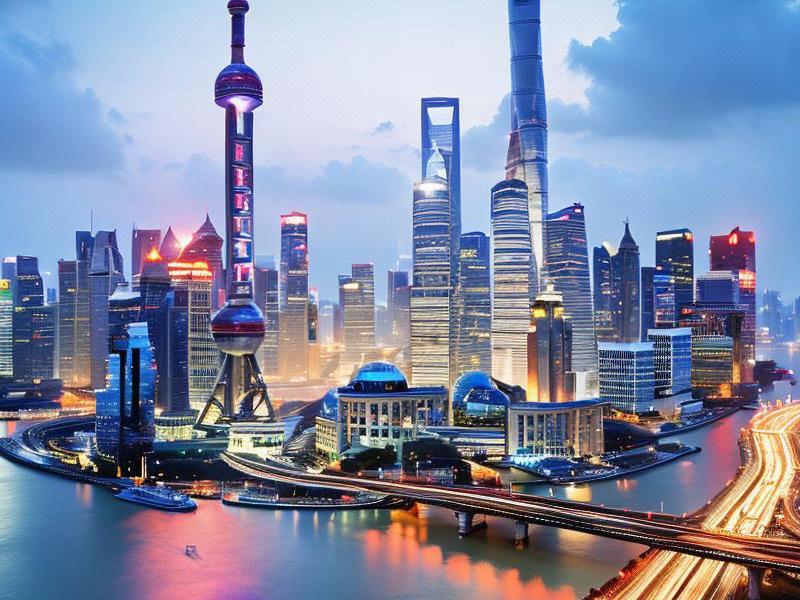The Impact of Shanghai: A Comprehensive Overview
⏱ 2025-05-01 12:13 🔖 上海龙凤419
📢0℃

Shanghai, often referred to as the "Pearl of the Orient," stands as a beacon of China's economic prowess and cultural vibrancy. Over the past few decades, this bustling metropolis has transformed from a modest port city into a global financial hub, exerting a profound influence on both China and the world.
Economic Impact
Shanghai's economic impact is nothing short of remarkable. As the largest city in China, it boasts the highest GDP among all Chinese cities, a testament to its robust economic activity. The city is home to the Shanghai Stock Exchange, one of the largest in Asia, which plays a pivotal role in facilitating capital raising and investment for businesses across the country.
The presence of multinational corporations and financial institutions in Shanghai underscores its status as a key player in the global economy. These entities have established their regional headquarters or offices in the city, attracted by its business-friendly environment, skilled workforce, and strategic location. This concentration of corporate power has not only boosted employment opportunities but also contributed to the city's rapid economic growth.
Moreover, Shanghai has emerged as a leader in innovation and technology. The city is home to numerous high-tech parks and incubators, fostering the growth of startups and tech companies. This focus on innovation has positioned Shanghai as a hub for cutting-edge research and development, driving economic diversification and enhancing its competitiveness on the global stage.
Cultural Influence
上海龙凤419手机 Beyond its economic achievements, Shanghai exerts a significant cultural influence, both within China and internationally. The city is a melting pot of diverse cultures, reflecting its history as a gateway to the West. This cultural fusion is evident in its architecture, cuisine, art, and fashion.
Shanghai's architecture is a testament to its rich history and cultural diversity. The Bund, with its iconic skyline of colonial-era buildings, stands as a symbol of the city's historical significance. Meanwhile, the futuristic skyline of Pudong showcases Shanghai's modernity and ambition. This blend of old and new creates a unique urban landscape that captivates visitors from around the world.
Culinary traditions in Shanghai are equally diverse, reflecting the city's history as a trading port. From traditional Shanghainese dishes like Xiaolongbao (soup dumplings) and Shengjianbao (pan-fried buns) to international cuisines, Shanghai offers a culinary experience that caters to all tastes. This gastronomic diversity has made the city a favorite destination for food lovers.
Art and fashion also thrive in Shanghai, with the city hosting numerous galleries, museums, and fashion shows. The Shanghai Museum is renowned for its extensive collection of Chinese art, while the city's contemporary art scene is vibrant and innovative. In the realm of fashion, Shanghai Fashion Week has become a prestigious event, attracting designers and fashion enthusiasts from around the globe.
Role in Globalization
Shanghai's role in globalization cannot be overstated. As a major international shipping and logistics hub, the city connects China to the rest of the world through its extensive network of ports, airports, and transportation infrastructure. This connectivity has facilitated the flow of goods, services, and people, fostering economic integration and cultural exchange.
上海龙凤419官网
The city's free trade zone, established in 2013, has further enhanced its role in globalization. This pilot zone offers a range of incentives and policies to attract foreign investment and promote trade facilitation. It has become a testing ground for China's economic reforms and a model for other cities seeking to integrate into the global economy.
Shanghai also plays a crucial role in international diplomacy and cooperation. The city hosts numerous high-profile events, such as the G20 Summit and the Belt and Road Forum, which bring together world leaders to discuss global issues and foster collaboration. These events underscore Shanghai's importance as a hub for international dialogue and cooperation.
Sustainable Development
As a global metropolis, Shanghai is also committed to sustainable development. The city has implemented various initiatives to address environmental challenges and promote green growth. For instance, Shanghai has been investing in renewable energy sources, such as solar and wind power, to reduce its carbon footprint.
The city has also been promoting green transportation options, such as electric buses and bicycles, to reduce traffic congestion and air pollution. Additionally, Shanghai has been enhancing its waste management systems, implementing recycling programs and waste-to-energy facilities to manage municipal solid waste effectively.
上海品茶工作室 In the realm of urban planning, Shanghai has been focusing on creating livable and sustainable cities. The city has been developing green spaces, such as parks and urban forests, to improve air quality and provide residents with recreational opportunities. It has also been promoting energy-efficient buildings and smart city technologies to enhance the quality of life for its residents.
Challenges and Opportunities
Despite its many achievements, Shanghai faces several challenges in its journey towards becoming a global leader. One of the key challenges is managing the rapid urbanization and population growth. As the city continues to attract migrants from rural areas, it needs to ensure adequate housing, infrastructure, and public services to meet the needs of its growing population.
Another challenge is addressing environmental issues, such as air pollution and water scarcity. Shanghai needs to continue implementing sustainable development practices to mitigate these challenges and ensure a livable environment for its residents.
However, these challenges also present opportunities for Shanghai to innovate and grow. For instance, the city can leverage its expertise in technology and innovation to develop solutions for urbanization and environmental challenges. It can also enhance its international cooperation and diplomacy to address global issues and foster economic integration.
【潮涌长三角:上海的半径与圆周】从外滩灯光到江南水乡的共生密码Shanghai's Vibrant Cultural Scene: A Blend of Tradition and Modernity【霓虹与素笺】上海女性的百年气质图谱Shanghai 5250: Quantum Leisure Singularity and the Galactic Nightlife Matrix【城市观察】文化魔方的三原色:上海剧场、书店与美术馆的共生实验Shanghai's Nightlife Renaissance: Where Imperial Heritage Meets Quantum Innovation【霓虹密码】上海娱乐会所的时空折叠术Shanghai's Smart Nightlife Ecosystems: Blending Imperial Heritage with AI-Driven Innovation【量子上海】在11个维度中同时绽放的魔都镜像(1850-2025)Shanghai's Finest Women: A Story of Resilience and Excellence

